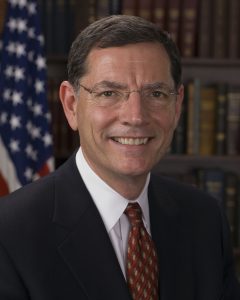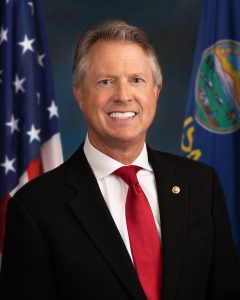On Wednesday, 27 July 2022, U.S. senators John Barrasso (R-WY) and Roger Marshall (R-KS) introduced Senate Bill 4634, “A bill to require the Secretary of Energy to administer polygraph examinations to certain foreign nationals with access to nonpublic areas or information of the National Laboratories.” The full text of the bill is available here (PDF).
S.B. 4634 would require the Secretary of Energy to subject to polygraph screening virtually every Department of Energy (DOE) employee or contractor who “is a citizen or national of, or otherwise owes allegiance to a country that…is designated as a country of particular concern under section 402 of the International Religious Freedom Act of 1998” and who is not a national of the United States or lawfully admitted for permanent residence.
It is not clear why the U.S. government’s concern about religious liberty in a particular country should be the criterion for requiring nationals of such countries to submit to polygraph screening. As of 15 November 2021, the officially designated “countries of particular concern” are: Burma, the People’s Republic of China, Eritrea, Iran, the Democratic People’s Republic of Korea, Pakistan, Russia, Saudi Arabia, Tajikistan, and Turkmenistan.
A comment by Sen. Marshall included in a press release suggests that the primary individuals intended for targeting are nationals of China and Russia. He is quoted as saying, “We currently have thousands of Chinese and Russia foreign nationals working in the Department of Energy, and while I have no doubt that most are faithfully contributing to American progress, the war in Ukraine has shown it is more vital than ever that we do all we can to protect our technological advancements.”
Senators Barrasso and Marshall, both of whom have medical degrees, should know better than to place any confidence in the thoroughly discredited pseudoscience of polygraphy. In 2002, the National Academy of Sciences completed an exhaustive review of the scientific evidence on polygraphs and concluded that “its accuracy in distinguishing actual or potential security violators from innocent test takers is insufficient to justify reliance on its use in employee security screening in federal agencies” (original emphasis).
S.B. 4634 is especially pernicious in that it requires the Department of Energy to terminate any covered employees who refuse to be polygraphed, even those merely under consideration for transfer to a position that grants access to “any nonpublic areas, data, or information of a National Laboratory.”
The bill also imposes permanent blacklisting of covered personnel who have refused a polygraph, even if they later obtain permanent resident status in the United States.
It is unusual, but not unprecedented, for Congress to mandate polygraph screening at federal agencies. In 2000, Congress mandated increased polygraph screening at the Department of Energy as part of the National Defense Authorization Act of 2001. In signing this must-pass legislation, then President Bill Clinton stated:
…I am deeply disappointed that the Congress has taken upon itself to set greatly increased polygraph requirements that are unrealistic in scope, impractical in execution, and that would be strongly counterproductive in their impact on our national security. The bill also micromanages the Secretary of Energy’s authority to grant temporary waivers to the polygraph requirement in a potentially damaging way, by explicitly directing him not to consider the scientific vitality of DOE laboratories. This directs the Secretary not to do his job, since maintaining the scientific vitality of DOE national laboratories is essential to our national security and is one of the Secretary’s most important responsibilities. I am therefore signing the bill with the understanding that it cannot supersede the Secretary’s responsibility to fulfill his national security obligations.
In its more than two decades of existence, the Department of Energy’s polygraph program has not caught a single spy.
Another precedent of Congress mandating polygraph screening is the Anti-Border Corruption Act of 2010, which requires that “all applicants for law enforcement positions with U.S. Customs and Border Protection receive polygraph examinations before being hired for such a position.” Since passage of that law, CBP has had a pre-employment polygraph failure rate on the order of 60%. Many honest applicants are wrongly branded as liars and disqualified from CBP employment, as a consequence of which CBP has had difficulty filling vacancies.


excellent. Long overdue.
Let’s save some government money and just flip a coin on every polygraph examinee since the poly and coin flipping have roughly the same accuracy. /sacr.
Wait, you all still want a polygraphist to administer the tests? How ’bout the fellow that “passed” Gary Ridgway which in turn led Ridgway killing about another 10 women? Aside from that minor mistake, I’m sure that polygraphist was highly professional.
Another option I have is to have the voice stress analysts do the testing, namely “Dr.” Baker and “Dr.” Humble. If you can’t trust someone with a fake doctorate, who can you trust?
Maybe the Ribacoffs can do the testing. I think the Ribacoffs only hate black people and rape victims so maybe they can be put in charge of the DOE testing.